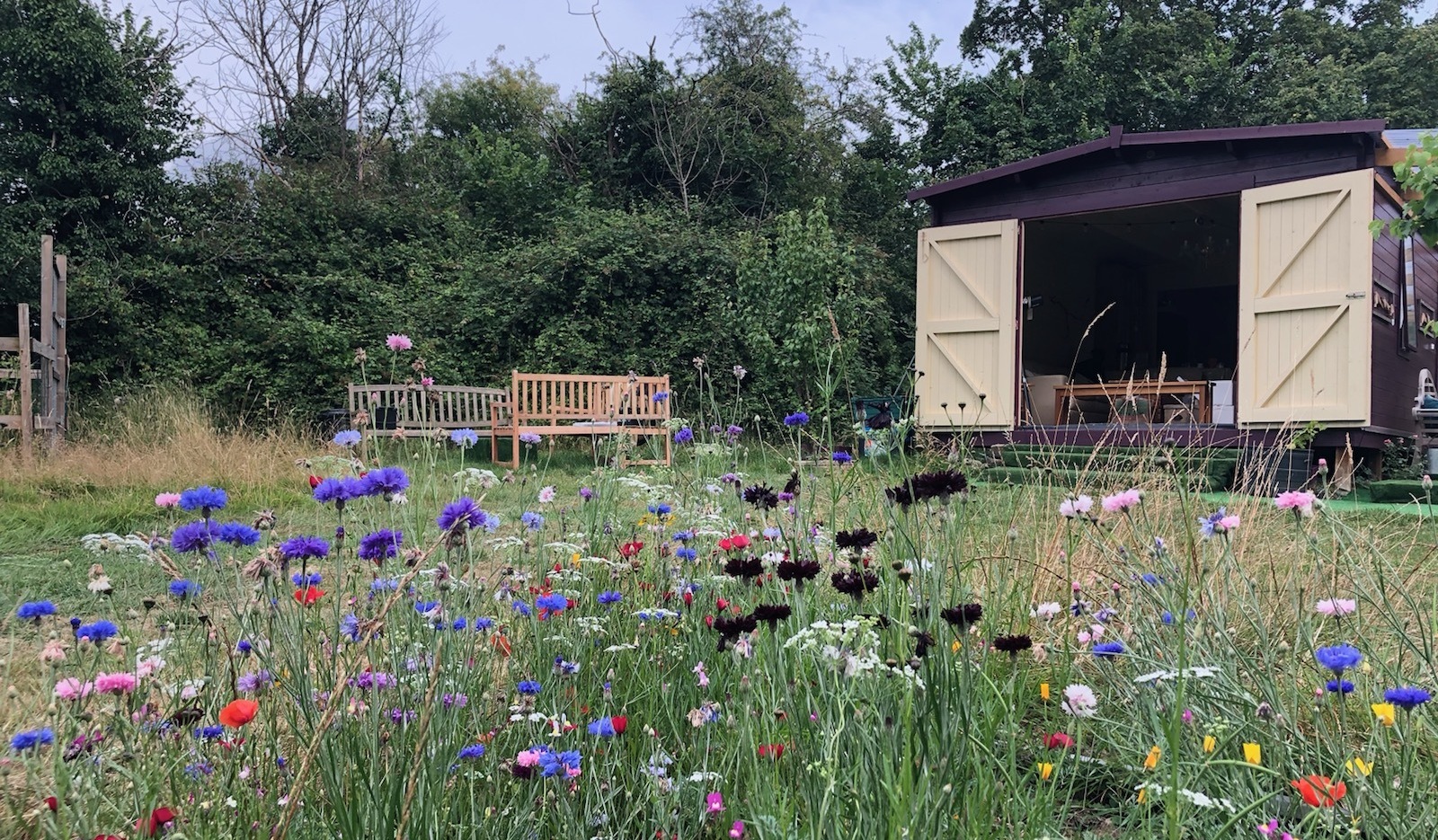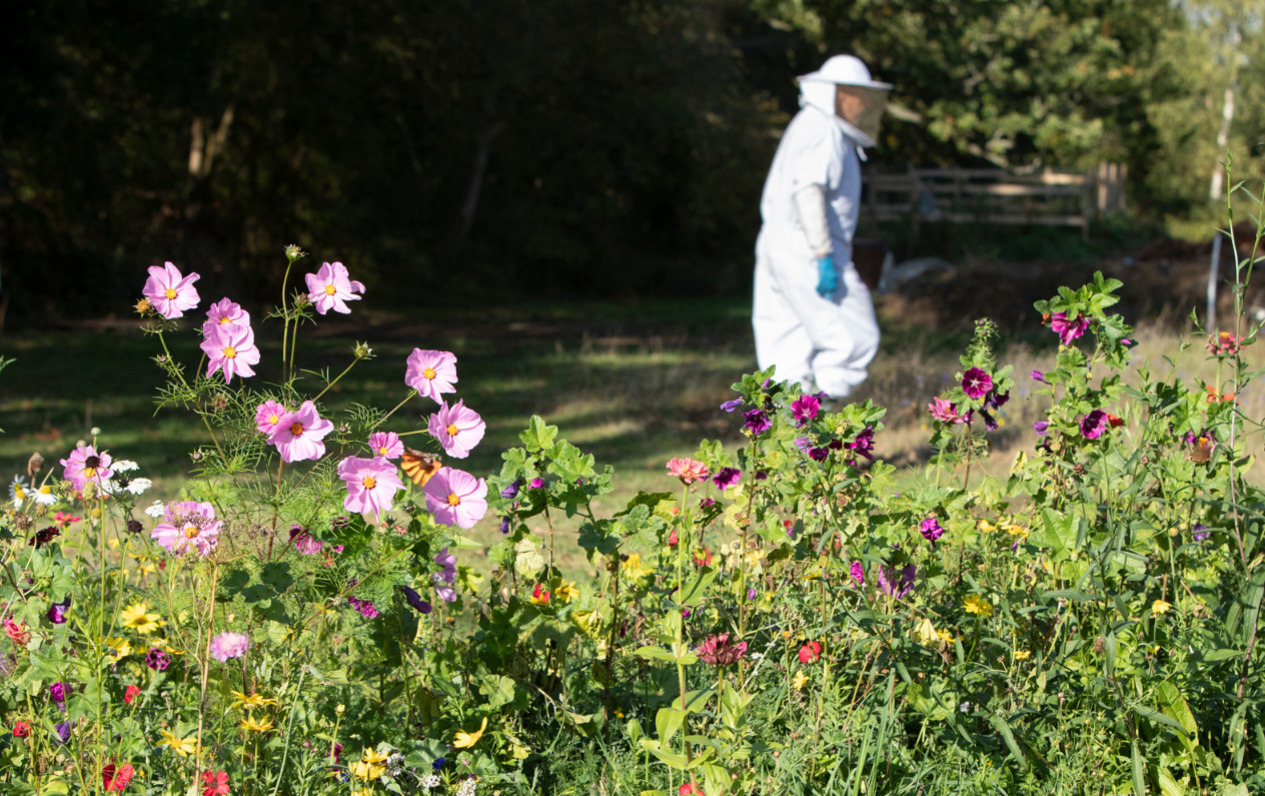Mindfulness With Bees
Posted on 28th February 2020 at 13:21
Not just because of the recent news about Caroline Flack but because of the increasing number of people committing suicide we want to share some information about how bees can help with our mental health.
One thing we teach guests on our beekeeping experience day, is that beekeeping requires you to be mindful.
Mindfulness means maintaining a moment-by-moment awareness of our thoughts, feelings, bodily sensations, and surrounding environment, through a gentle, nurturing lens.
Mindfulness
noun
1.
the quality or state of being conscious or aware of something.
"their mindfulness of the wider cinematic tradition"
2.
a mental state achieved by focusing one's awareness on the present moment, while calmly acknowledging and accepting one's feelings, thoughts, and bodily sensations, used as a therapeutic technique.
In short, being mindful = being present.
This means letting go of past experiences and future worries and being totally aware of, accepting of and in the present moment.
Mindfulness and its positive effects on suicide and emotions has been heavily documented in many studies. For example it has proven to be efficacious in the treatment of emotional problems (Britton et al., 2012; Santarnecchi et al., 2014).
Mindfulness originated in the traditions of Buddhism and is defined as an awareness of the present experience with an attitude of acceptance and non-judgment (Kabat-Zinn, 1994).
The essence of mindfulness, present moment awareness, not only can be cultivated through mindfulness-based training but also may exist as an individual disposition (Brown and Ryan, 2003).
Mindfulness encourages observation and acceptance of thoughts, feelings and sensations, which in turn leads to a greater understanding of the feelings as they occur (Coffey et al., 2010).
In a survey of college students in 2014 it was found that dispositional mindfulness was negatively associated with suicidal ideation. Furthermore, interventions based on mindfulness, such as mindfulness-based cognitive treatment (MBCT), may help reduce an individual’s suicidal risk. In support of this in 2015 an MBCT clinical intervention study was carried out and the results indicated that MBCT was effective in reducing suicidal ideation among outpatients who presented an elevated suicide risk.*
Most of us find being present incredibly difficult in this day and age with increasing use of technology, social media and the consumer culture pushing us to buy more, have more and do more.
Beekeeping asks us to exist completely in the present moment, to be calm when surrounded by chaos and to trust ourselves and nature.
In the same way that your breath work during meditation gives you a focus point for the present moment; bees with their natural flow and their gentle buzz can also give you a focus point too.
Mindfulness does not come naturally to most of us, it requires practise and commitment and so we find beekeeping a very useful tool to aid in this practise. Not only that but beekeeping can provide a sense of purpose for anyone who does it.
The rewards of beekeeping are worth their weight in gold. Honey, wax, royal jelly and pollination of our plants quite literally can bring in the gold; but perhaps the greatest value bees hold is the company they provide and the peace they bring into your life. So don’t hesitate to “tell it to the bees”.
If you are struggling with your mental health and/or having suicidal thoughts you can also call the Samaritans on 116 123. Whatever you're going through, a Samaritan will face it with you. Lines are open 24 hours a day, 365 days a year.
Should you wish to learn more about bees and beekeeping feel free to contact us and find out how we can help.
*To learn more about some of the research shared above please follow this link to the original article - https://www.frontiersin.org/articles/10.3389/fpsyg.2019.02106/full
Tagged as: apiary, bee hive, beekeeper, beekeeping, bees, emotions, hive, kindness, meditate, mental health, mindful, mindfulness, natural, nature, positivity, suicide, suicideprevention, talking to bees, tell it to the bees
Share this post:



